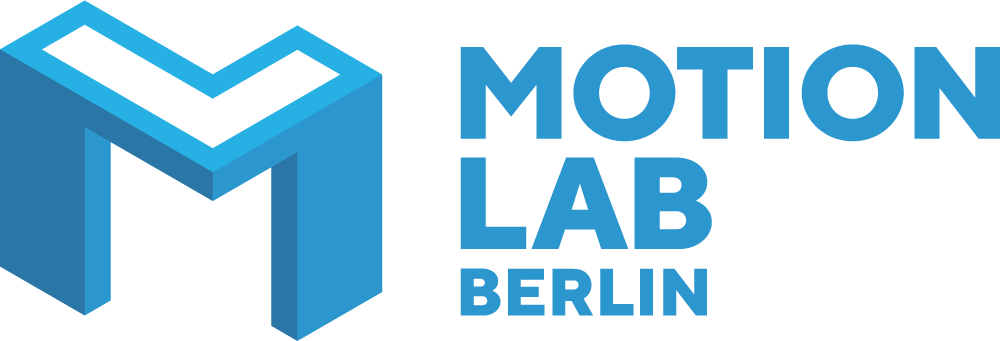Welcome our new Hardtech Innovation teams!
GET TO KNOW BATCH 3 OF OUR BERLIN ACCELERATOR!
The new batch of our Berlin accelerator program just started! Which means new teams, new exciting ideas, products and lots of new developments and learnings! Let's take a glimpse into our batch 3 together and get to know the startups for the first time.
The new batch of our Berlin accelerator program just started! Which means new teams, new exciting ideas, products and lots of new developments and learnings! Let’s take a glimpse into our batch 3 together and get to know the startups for the first time.
We made it! We just started into the next batch of our Berlin accelerator program Hardtech Innovation!
- 8 new hardtech startup teams are selected and on board
- The kick-off week was a success
- First workshops and input sessions started
But what exactly happened in the kick-off week of our Berlin accelerator program Hardtech Innovation? And who are the teams? Let’s dive into it!
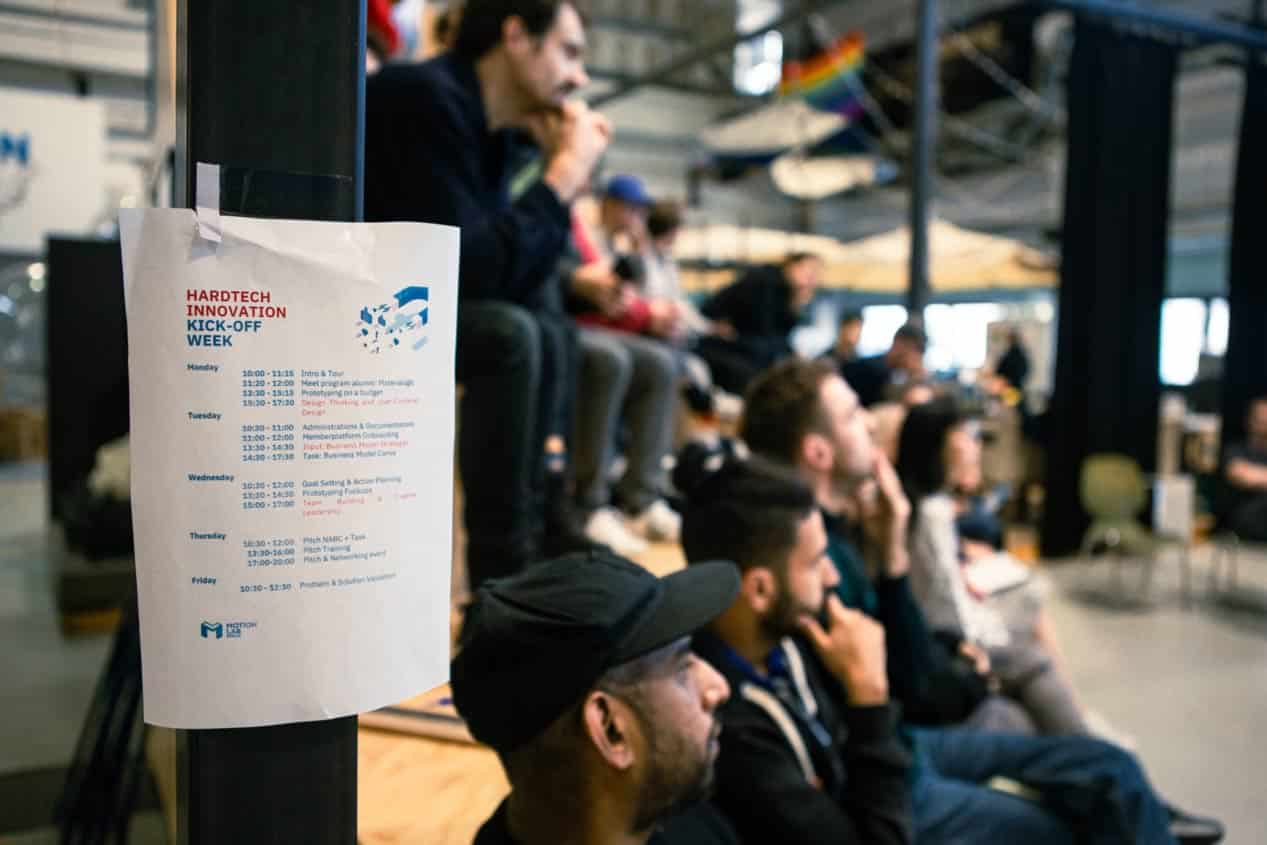
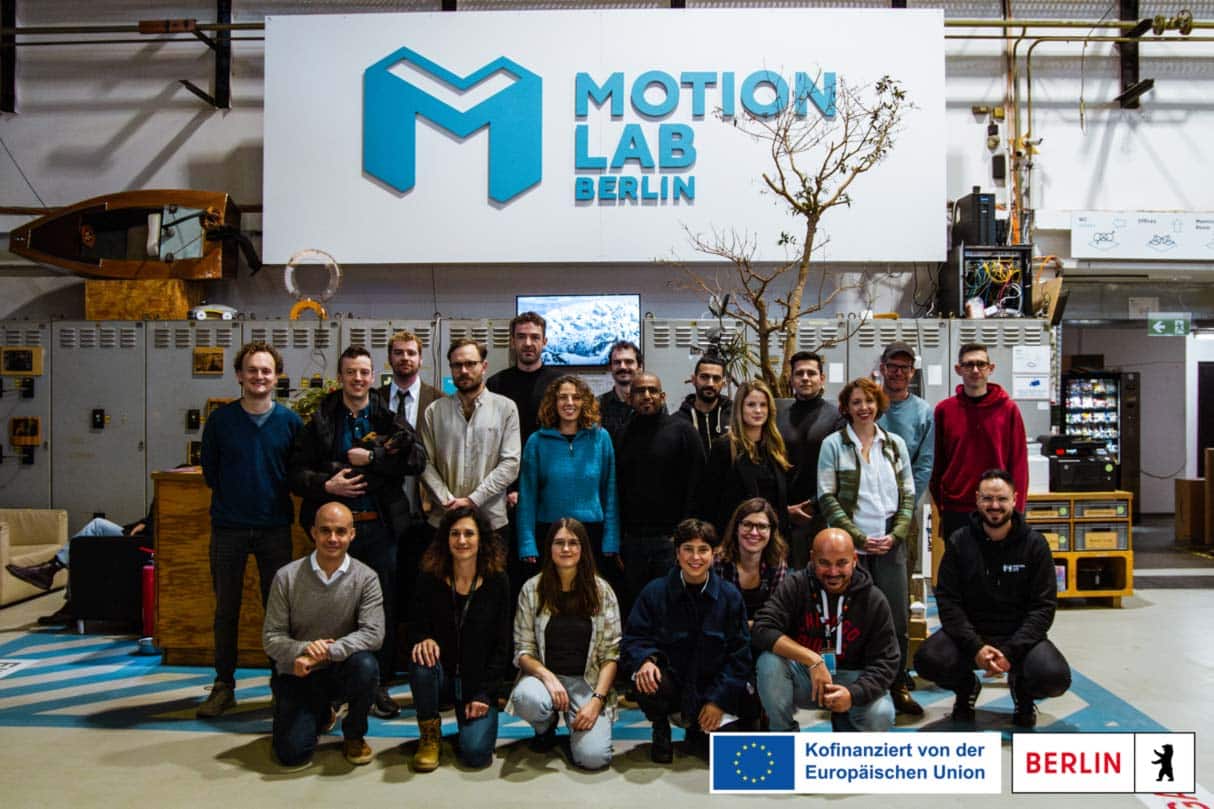
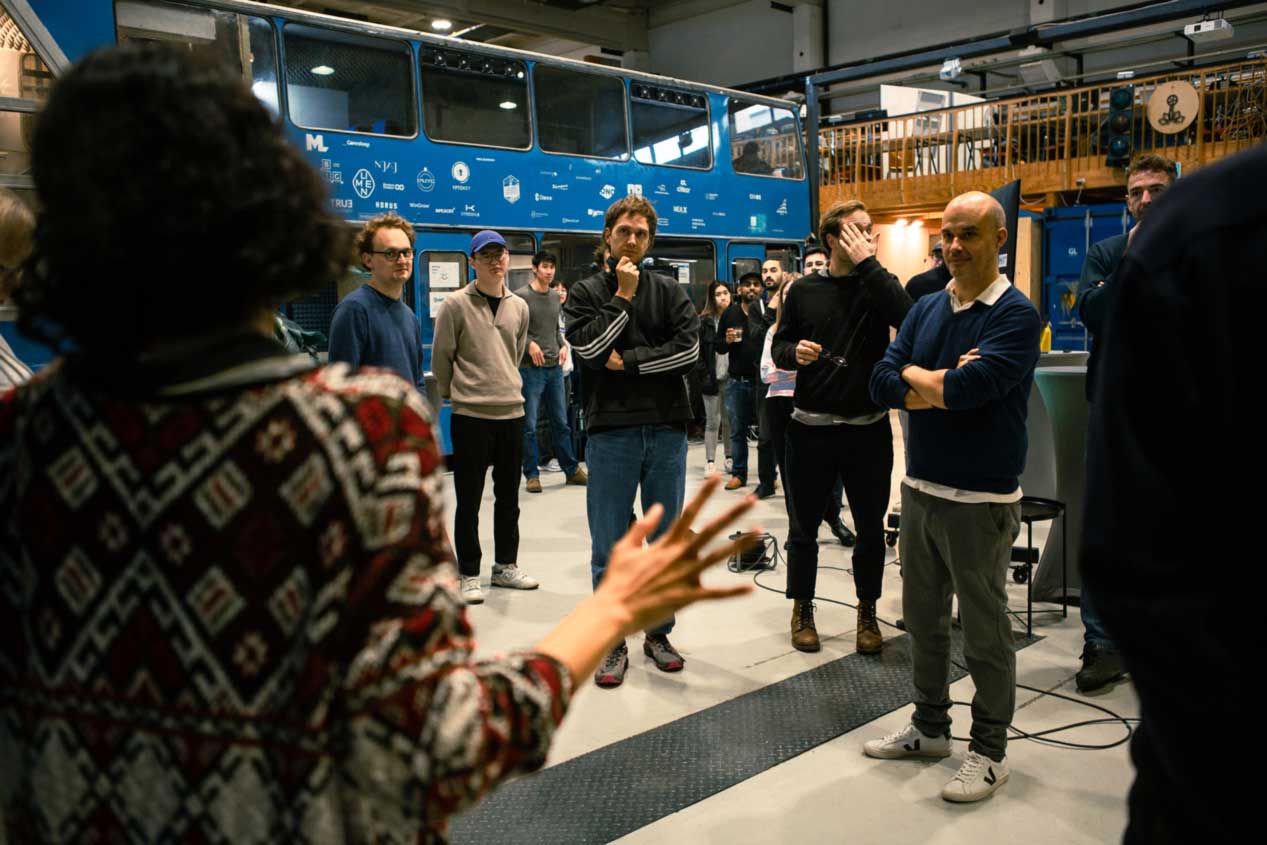
OUR HARDTECH INNOVATION PROGRAM
IS SUPPORTED BY
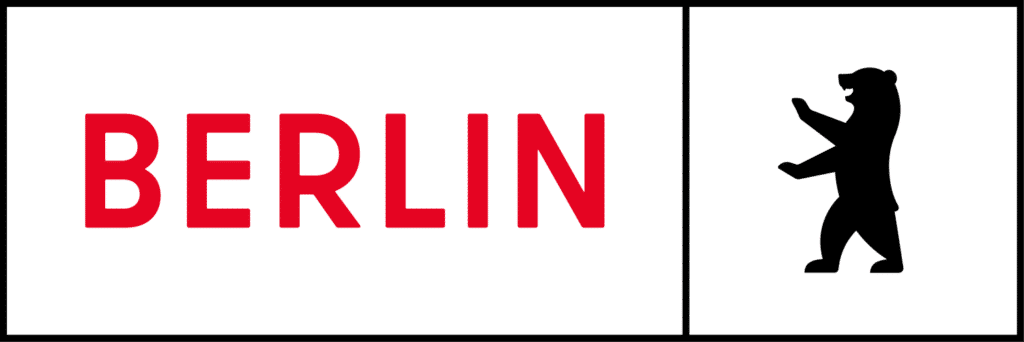
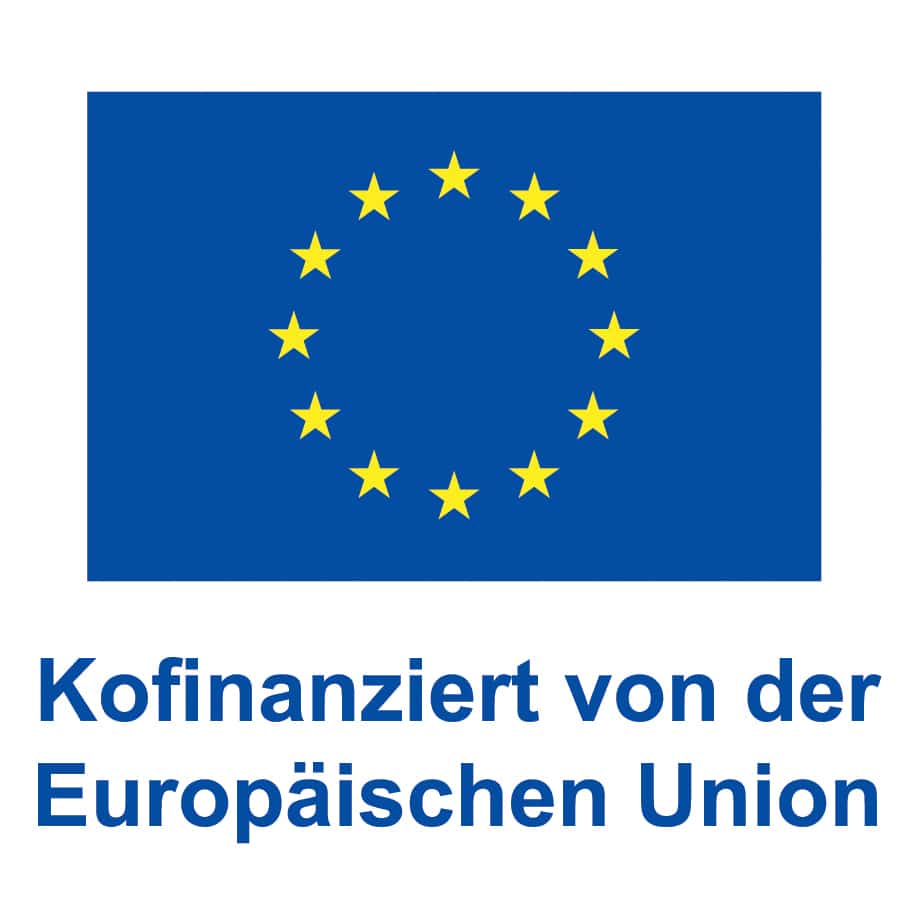
THAT WAS OUR KICK-OFF WEEK!
At the beginning of November, we successfully started into the batch 3 of our Berlin accelerator program Hardtech Innovation through a kick-off week with many different workshops, presentations and time to get to know each other!
At the beginning of November, we successfully started into our Hardtech Innovation Batch 3 through a kick-off week with many different workshops, presentations and time to get to know each other!
During the initial week of the startup scaling and accelerator program, all 8 teams participated in multiple workshops and received tours and introductions to our labs. A big thank you to our Startup Program Manager Marianna Egressy, and our new Project and Backoffice Manager Kai Russwurm for organising this colourful week. Along with the administrative onboarding, ice breakers, interactive challenges, and input sessions from alumni like Max Cuppens from Materialogic and Stephen O’Brien from Clippits UG, the teams also had several workshops. Here are some examples and insights into our Berlin accelerator program welcoming week!
- Prototyping: The famous ‘prototyping on a budget’ workshop by Tayla Sheldrake was, of course, a must! Building the team’s first prototypes out of everyday materials such as cardboard, aluminum foil, tape, and paper, provides insight into how a product might look and how customers could interact with it. Daniel Shor from Innovobot Labs also joined with his specialty topic: “Prototyping fuckups”.
- Design Thinking & Team Development: Jana Mendelski and Pooja Channaveerappa not only coached our whole team in the summer, but they are also experts in innovation management. They talked to the Hardtech Innovation team about design thinking, user-centered design, team building, and creative leadership.
- Business & Product Development: Alongside the analysis of several business case studies, the teams also learned about the go-to business model Canvas and Value Proposition Canvas. The workshop by Tayla Sheldrake emphasized that success lies not in overwhelming features but in crafting a focused and compelling value proposition.
- Pitching: The end of the input marathon was all about pitching. Tayla Sheldrake taught the 101 pitching fundamentals, various pitch types, and the structural keys to captivate any audience. Their pitch debut was on that same evening in front of our community members and their future mentors! We ended the kick-off week of batch #4 of our Berlin accelerator with wine and pizza.
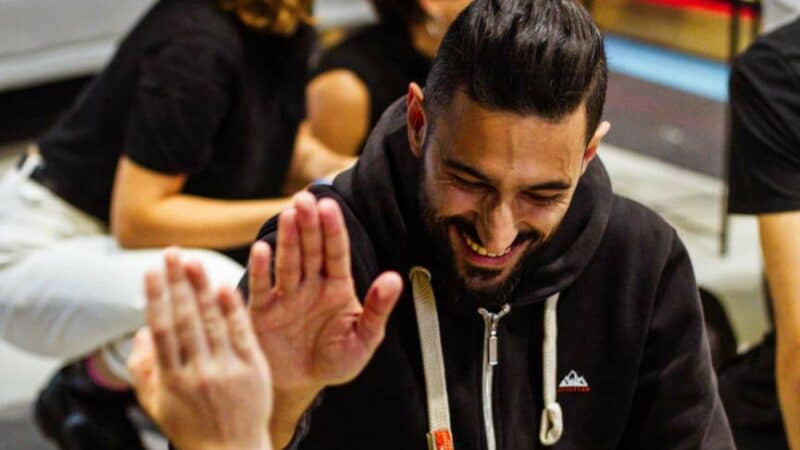
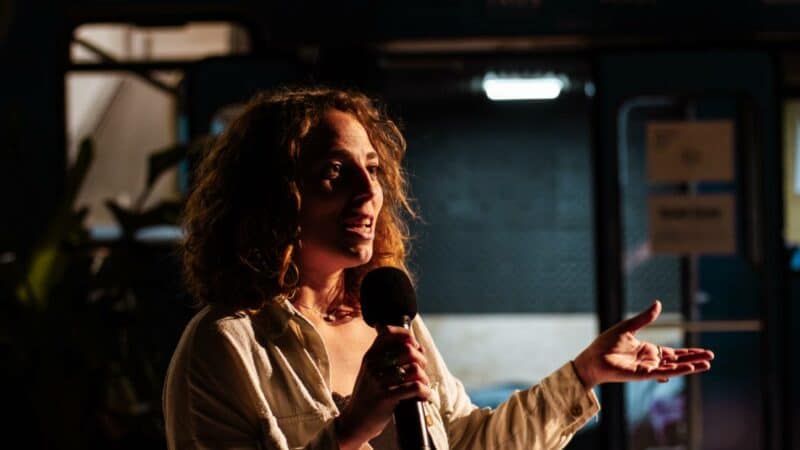
HARDTECH INNOVATION PROGRAM
IS SUPPORTED BY


GET TO KNOW THE TEAMS!
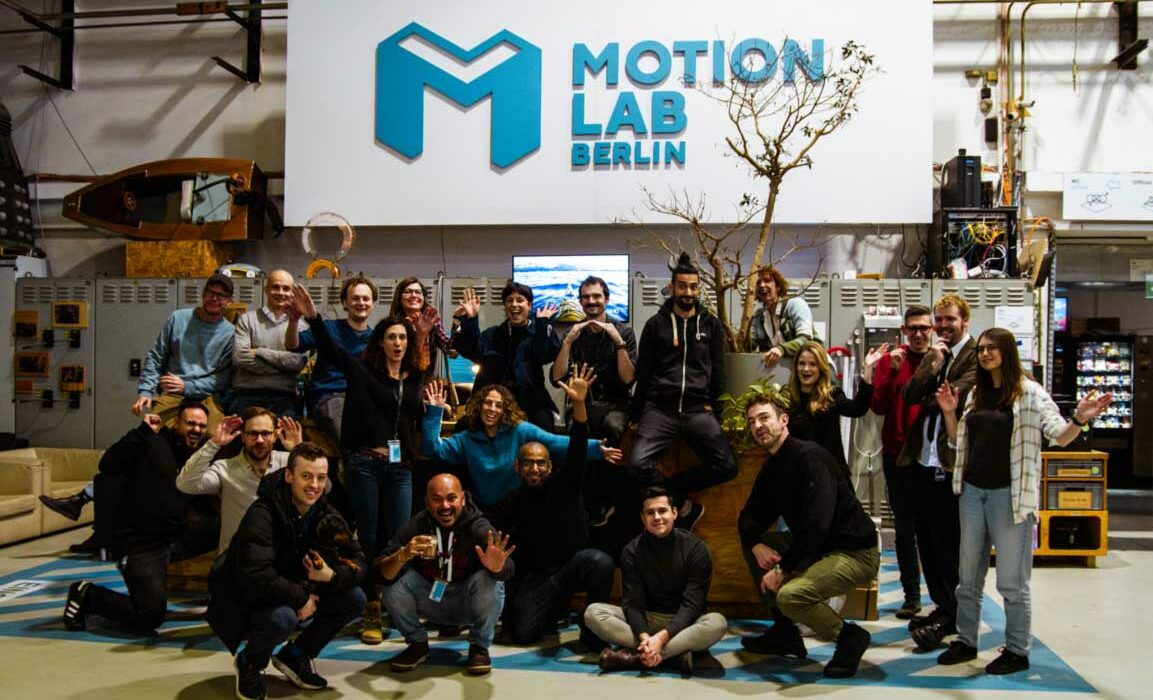
With this kick-off week we welcomed all 8 new teams in batch #3 to our Berlin accelerator program Hardtech Innovation. The selection was again hard for our team, but we are very happy to have them all here at MotionLab.Berlin and in our startup program. So, what are they working on and what are their goals? One thing they all have in common is their desire to make this world a more sustainable place.
TEAM 1: HOOP SOLAR
Hoop Solar works on a semi-transparent solar solution for plastic greenhouses (hoop houses or polytunnels). This innovation by co-founders Ross and Kevin involves a lightweight, thin-film product that replaces the traditional plastic covering. It enables growers to produce clean energy and permits enough light for horticulture. The product is designed to be easily installed on existing greenhouses.
TEAM 2: LUFT
Luft aims to reduce carbon emissions from heating, which currently contributes about a fifth of total CO2 emissions. The team, led by Marcin and Joaquin, is creating hardware and software to speed up the shift to electric heating. They focus on installing heat pumps in existing multi-family homes, which house the majority of people in Europe.
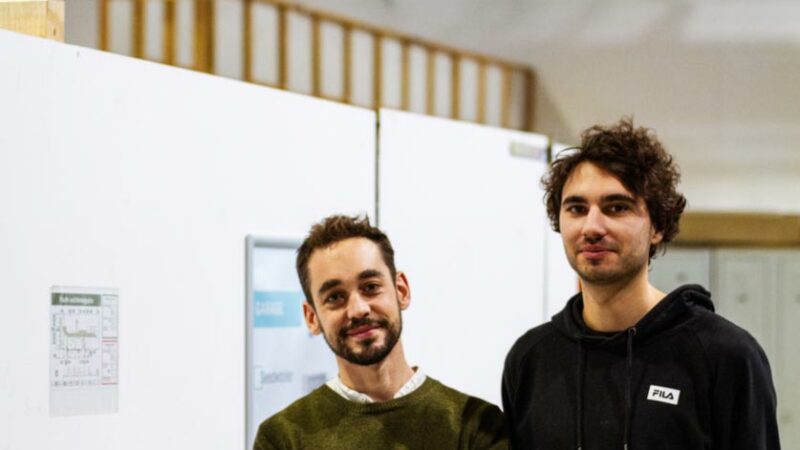
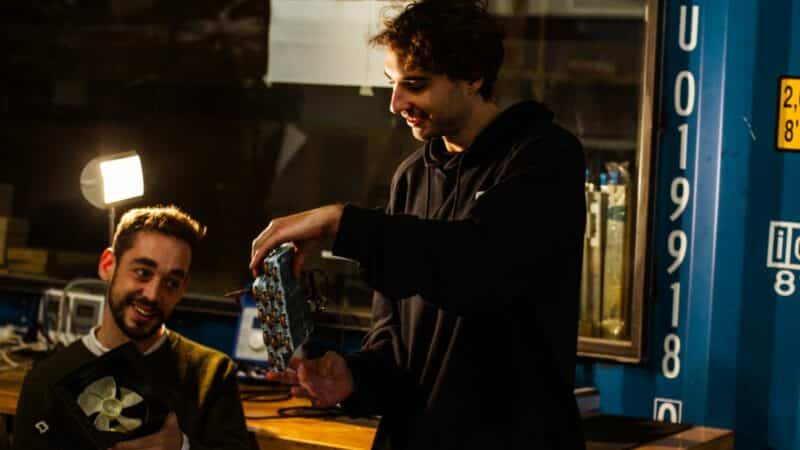
TEAM 3: NANOMATTER
NanoMatter Technologies is working on a big advancement in computer chip technology. They’re using a cutting-edge method called integrated chemical vapor deposition, along with smart AI tools, to make semiconductor layers (super-thin coatings for computer chips). Right now, these super-thin layers are not easily available. This new technology will help solve problems that are holding back the use of certain materials in chip-making. When the new semiconductor layers become more accessible, it will be a game-changer for both researchers and companies, helping them use these materials more effectively in making computer chips.
In simple terms, the two co-founder Emad and Mithun aim to lead the way in making better computer chips by overcoming a key technical challenge. This could lead to a big change in how we make computer chips in the future.
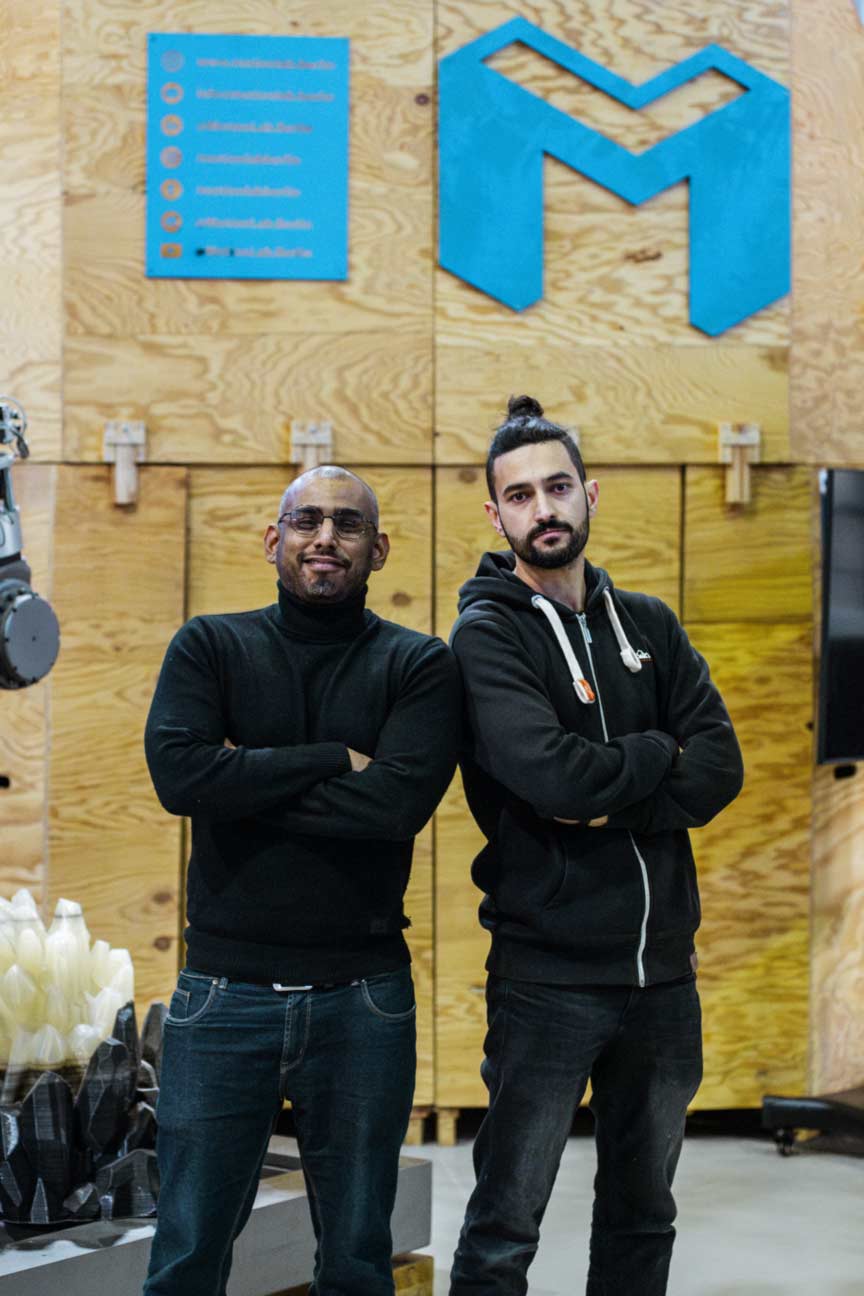
TEAM 4: SPAIA
SPAIA believes that addressing insect declines requires more data from diverse sources, achieved through technological innovation and community collaboration. Their vision is to create a global network of smart monitors linked to an open data web platform, capturing real-time insect activity and crucial environmental data. By involving scientists, businesses, and the public, SPAIA aims to gather valuable data on insect behaviour in relation to environmental factors. This data will enhance understanding of the challenges insects face, supporting evidence-based conservation efforts.
Yet, SPAIA’s goal goes beyond data collection. The team, Collette, Brodie, Sam, and Tom, aspire to raise awareness about the vital role insects play in ecosystems and their intriguing world. The team seeks to empower a global community committed to preserving the world’s insects for the benefit of present and future generations.
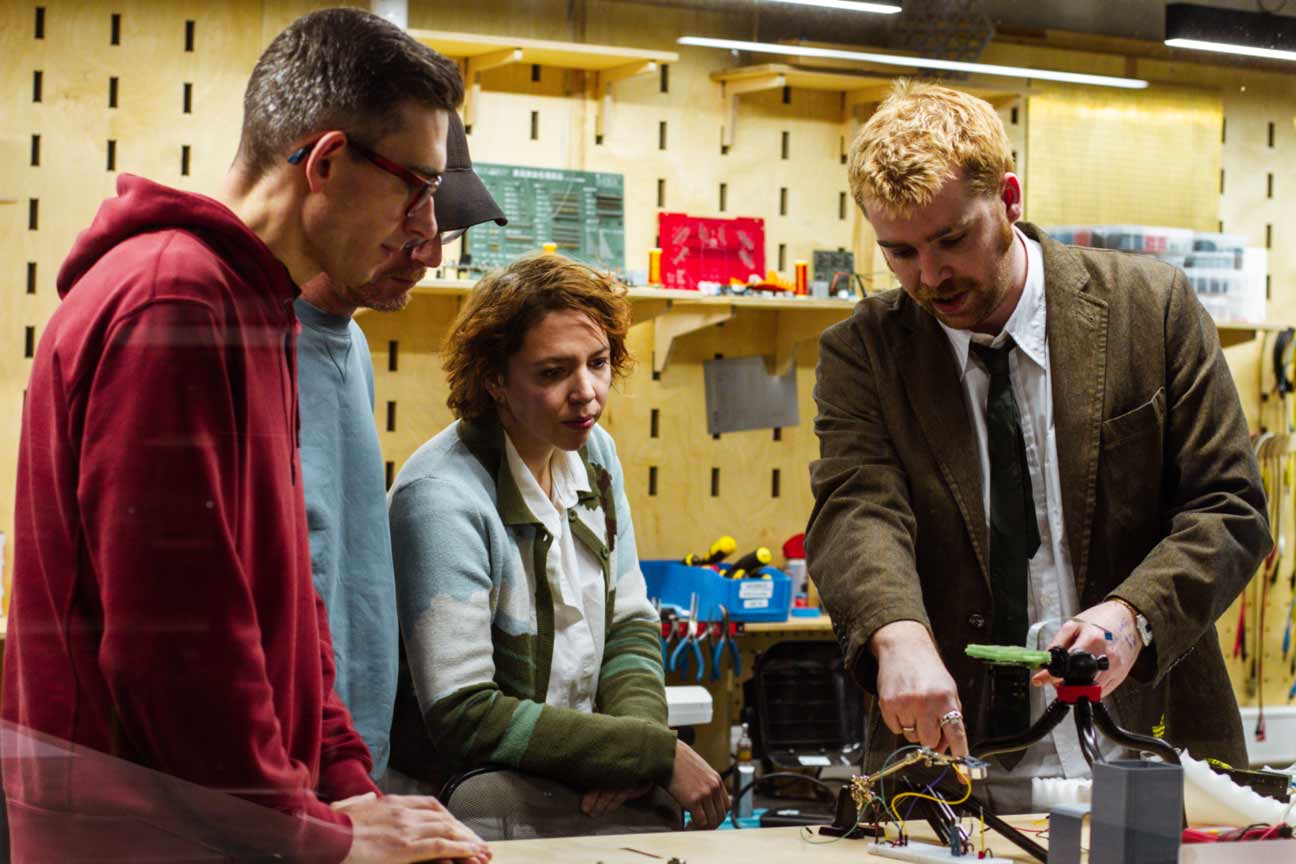
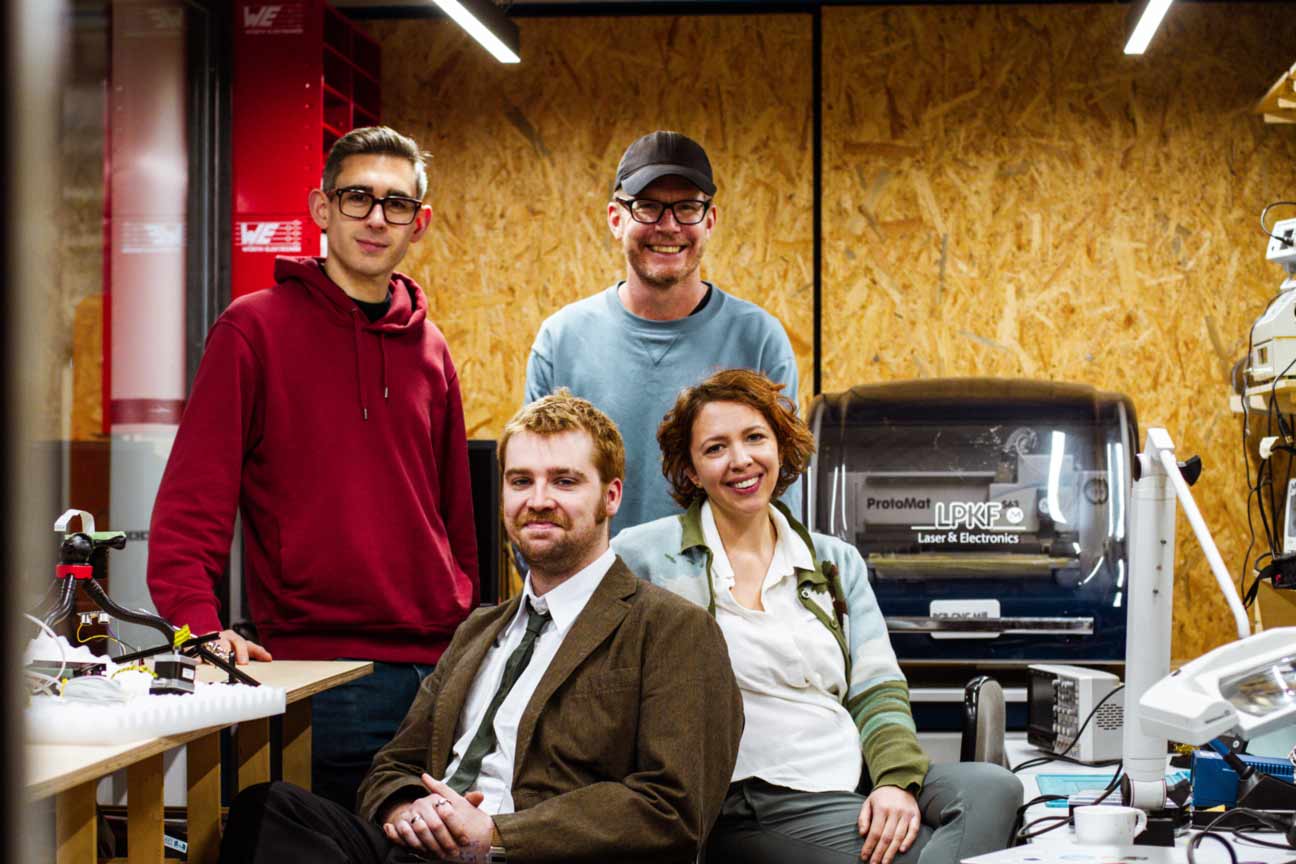
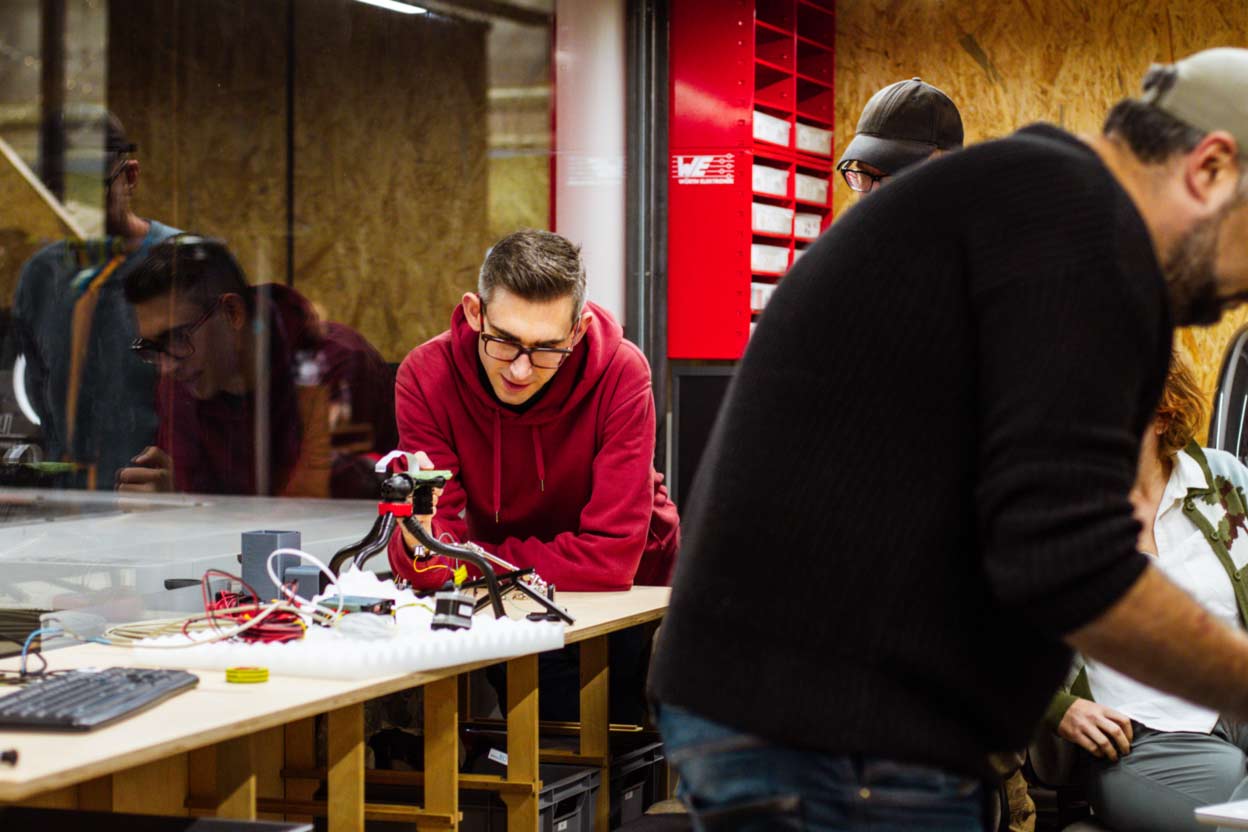
TEAM 5: OTO MOBILITY
To tackle the issue of excessive urban car usage and address public transport challenges, OTO Mobility introduces a specially designed vehicle for urban mobility sharing. OTO stands out with its compact size (below 2×1 metres), lightweight, and electric power, resulting in a minimal CO2 footprint in both production and operation.
The three co-founders Sabine, Magnus, and Leon want to create a sturdy build and easy-to-clean interior that reduces running, maintenance, and repair costs significantly. OTO, requiring only the lowest class driving licence, allows mobility sharing providers to serve more customers in limited urban space. For users, OTO’s tilting technology enhances driving stability, while the enclosed passenger cabin offers weather protection, comfort, and safety.
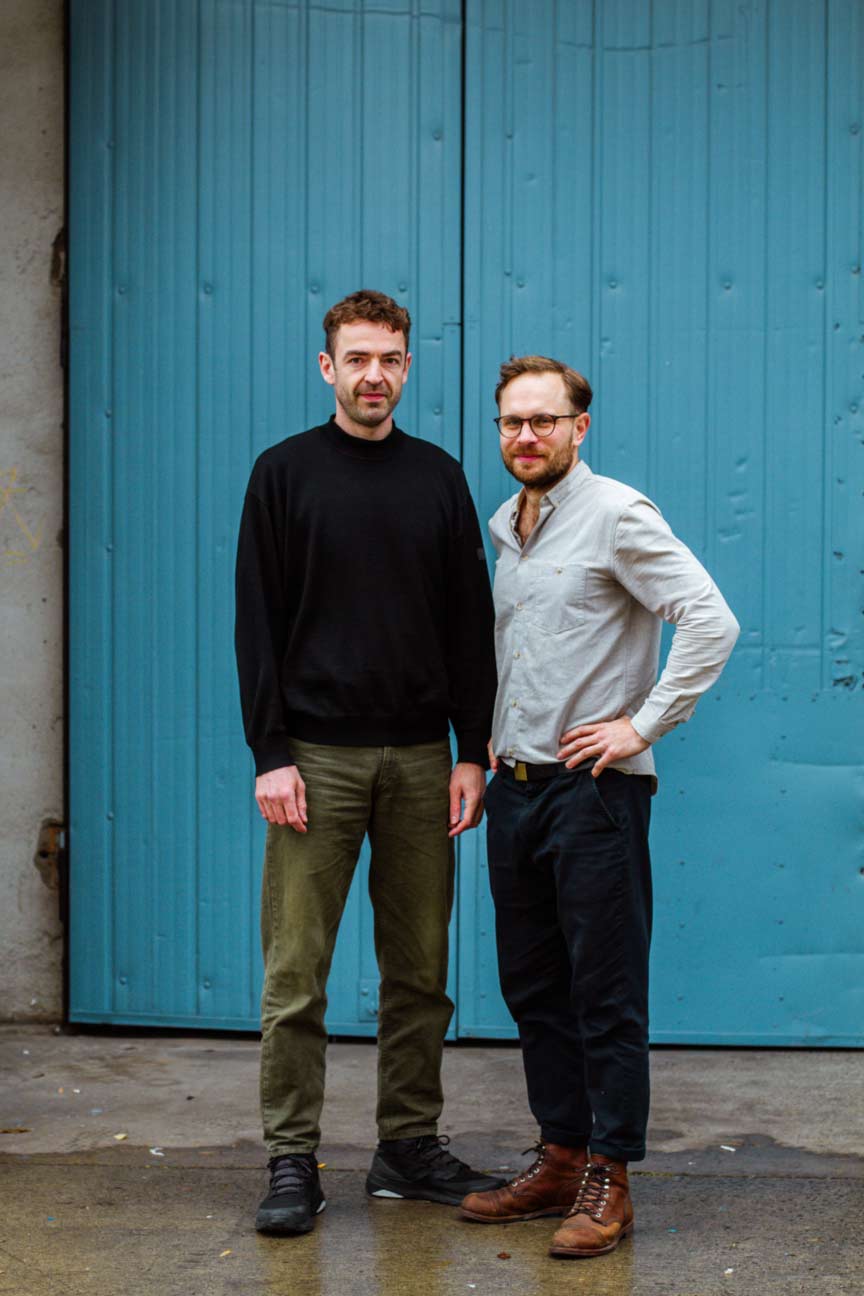
TEAM 6: REDIVIVUM
Redivivum is building the Industry 4.0 sorting solution for the fashion and textile sector. Szilvia and Aron are working on solving the niche but crucial pain point of sorting and evaluating used garments and home textiles for higher value channels such as reuse, repair, or recycling.
By developing an automated and digital system for industrial usage the team can optimize the current manual processes of sorting facilities, provide them with accurate data and insights, and most importantly allow them to expand their capacity rapidly. This is crucial to tackle the growing textile waste issue globally.
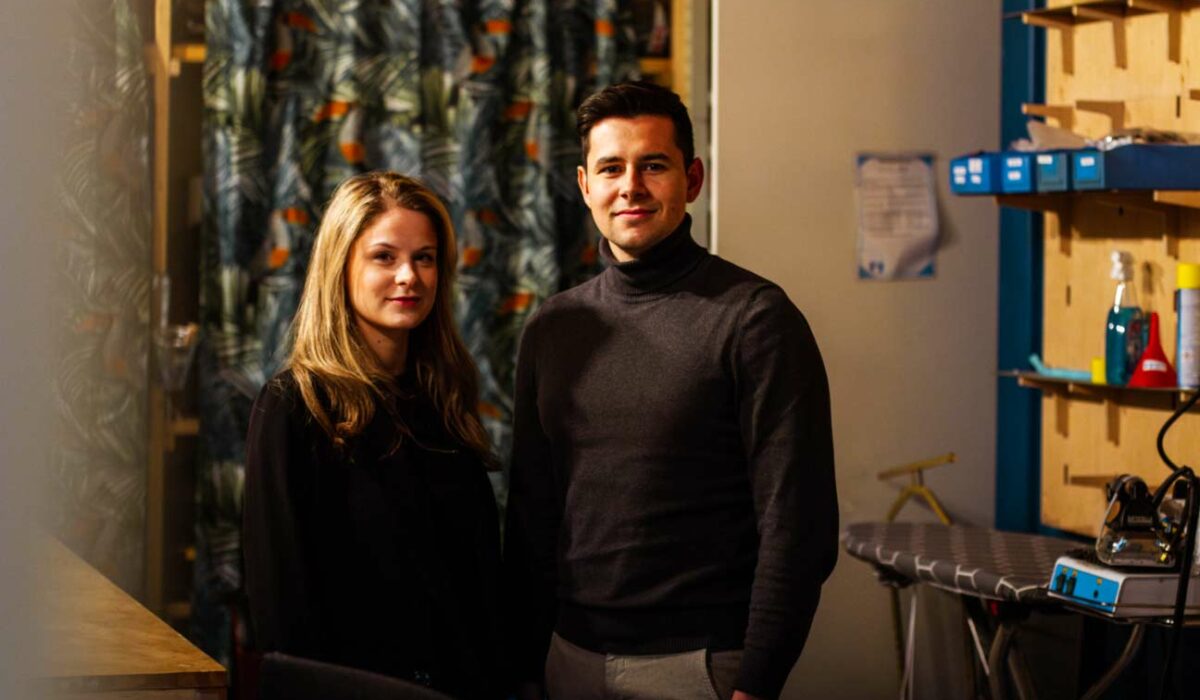
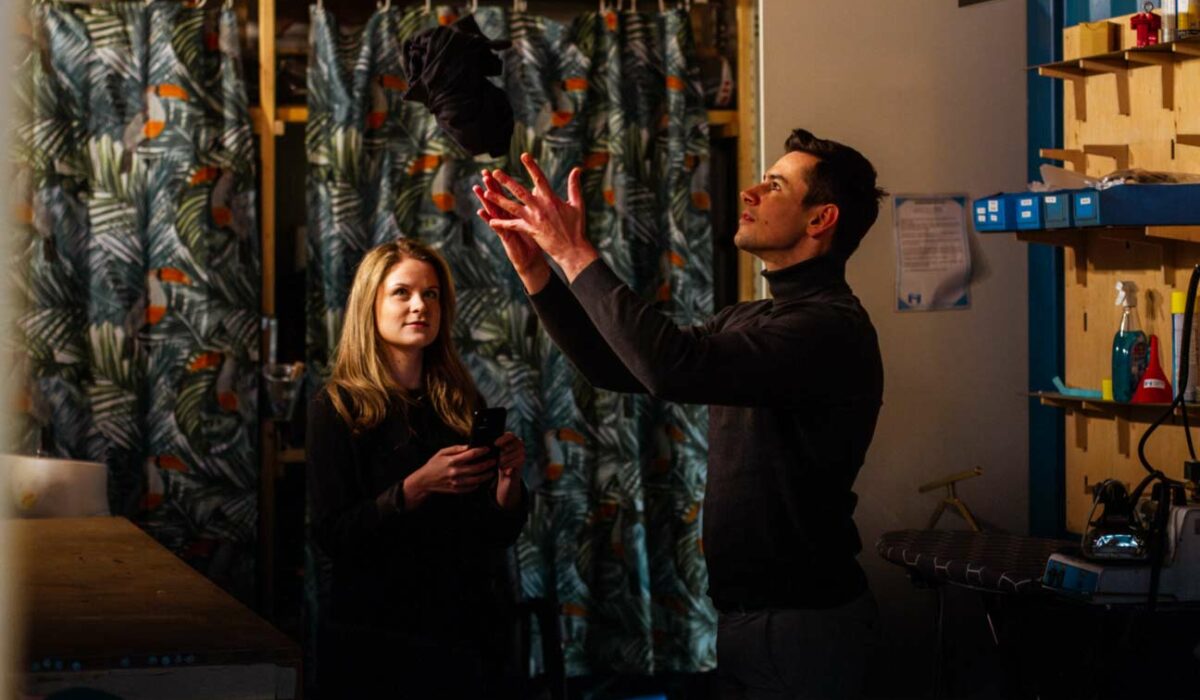
TEAM 7: VOLTVOGEL
VoltVogel separates EV charging from parking, bringing the charging station autonomously to the vehicles, and using renewable energy to support the grid and reduce the carbon footprint. Their charging service, with AI-driven autonomous stations, is flexible, scalable, and swiftly deployable. Using sustainable batteries, it charges from any socket and offers different current rates for EVs.
The autonomous units can serve about 30 cars within a 500-meter radius from one fixed socket. Each charger is self-contained with an integrated payment system and charging cable. Moreover, the team of three, Katharine, Christine, and Abhishek, want to create a solution that is more convenient than filling up a tank at the gas station and seamlessly integrates with local solar energy sources.
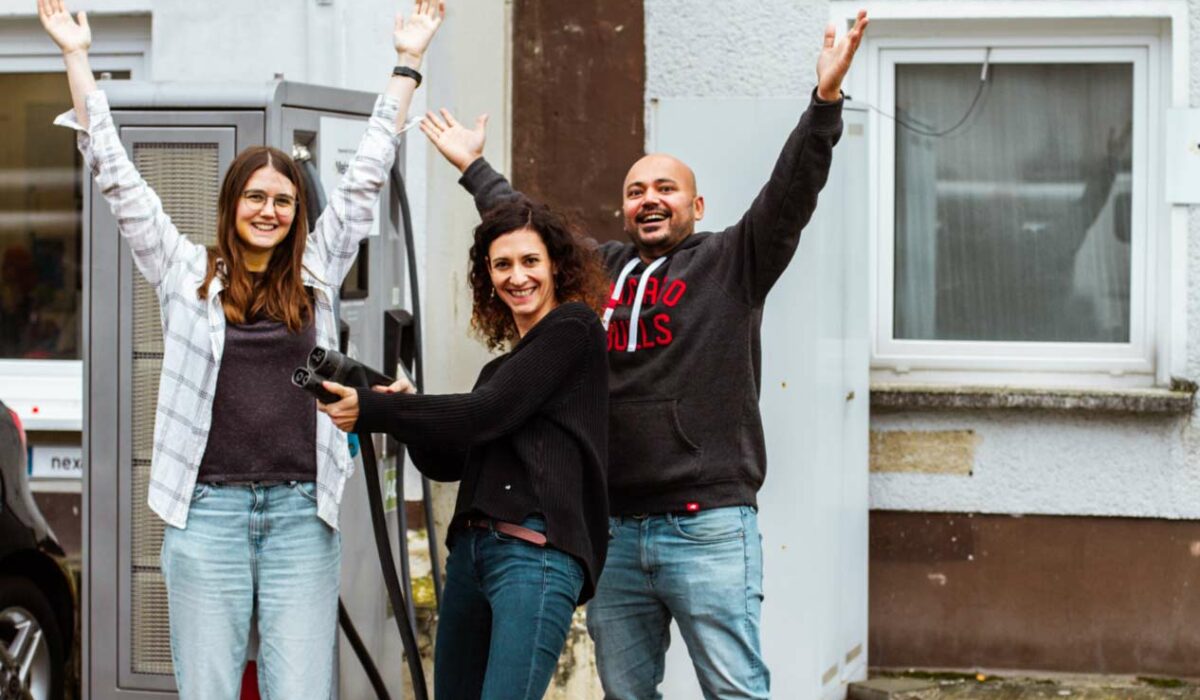
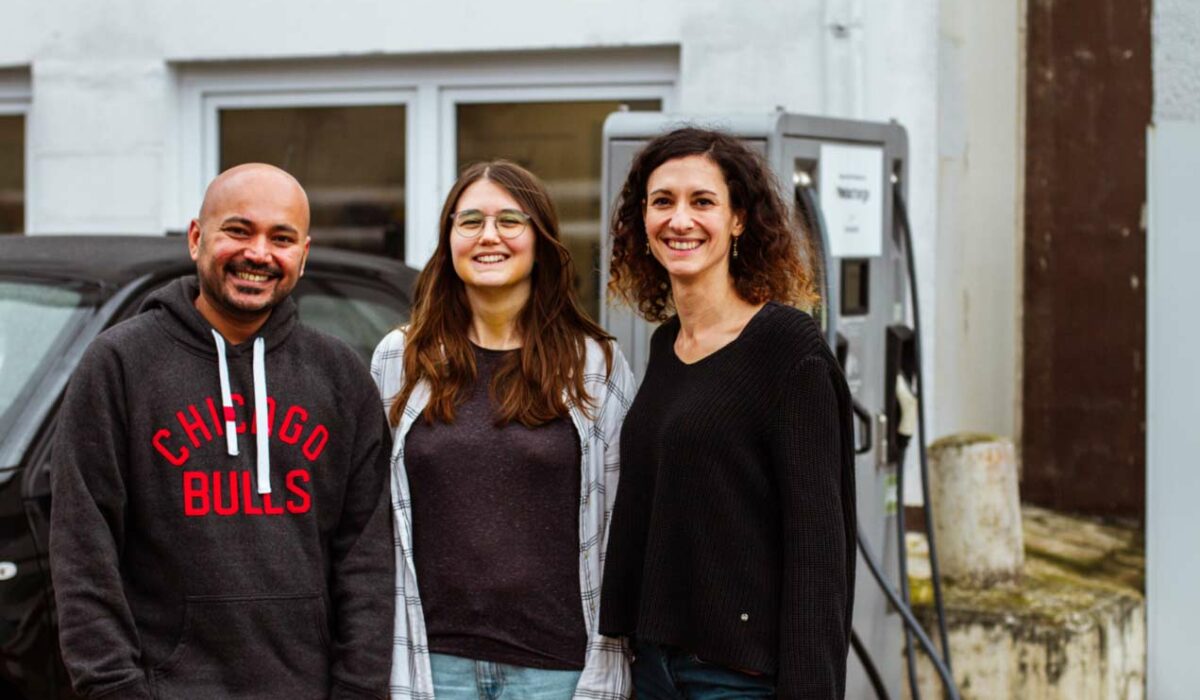
TEAM 8: TRIPPYHOLD
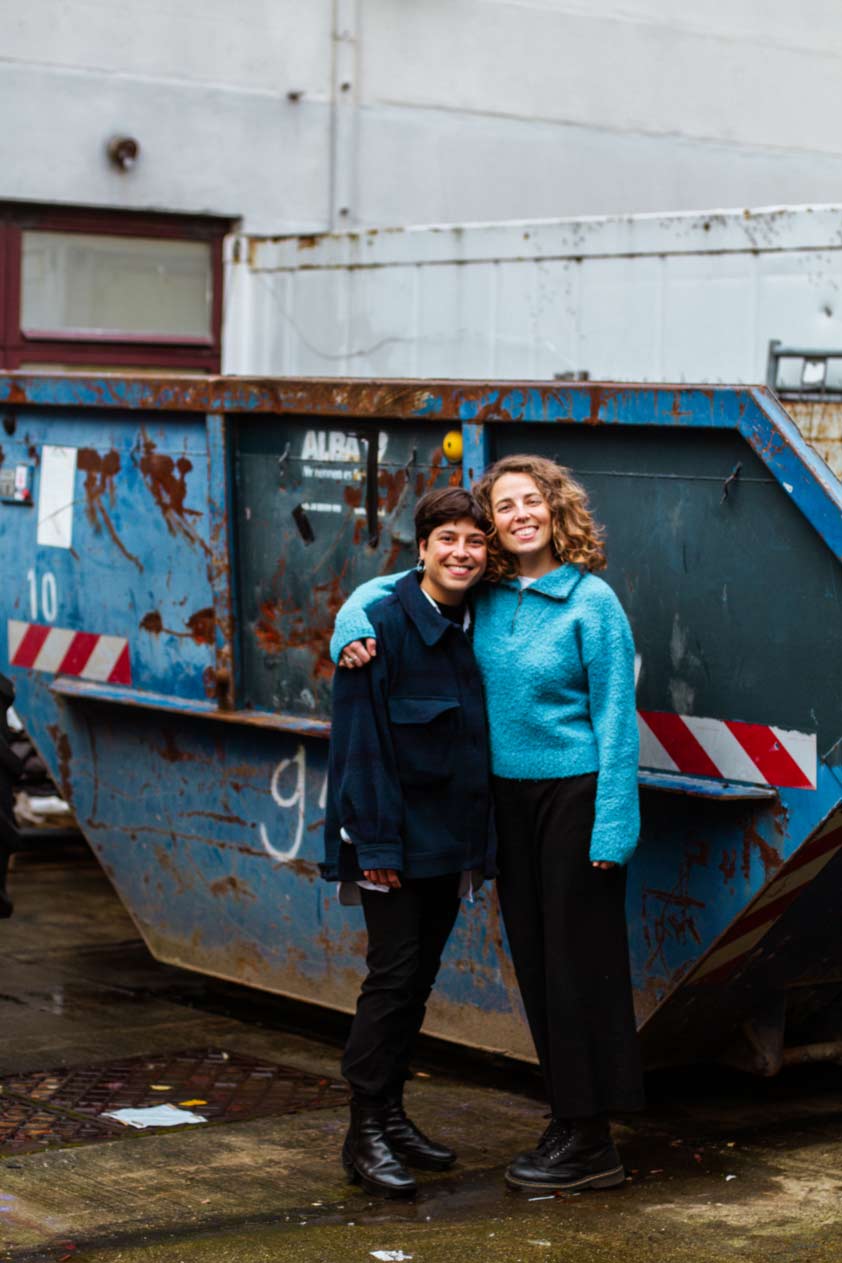
Trippyhold aims to transform the climbing world by crafting climbing volumes and holds from mycelium-based materials. The two founders, Marta and Manuela, recognized two significant challenges in the climbing community: the difficulty of recycling or reconditioning holds and their heavy weight. To address these issues, they use mycelium-based materials, offering solutions that seamlessly combine lightweight, eco-friendliness, and durability.
By replacing plastic holds with biodegradable alternatives, Trippyhold goes beyond solving a niche problem. The team contributes to a broader movement toward eco-friendly practices in sports, reducing plastic consumption, managing waste, and fostering productivity and creativity in climbing gyms.
STAY TUNED AND FOLLOW THEIR JOURNEY!
We welcome all 8 teams to our space and community and are very excited to see them grow, but also face their first challenges. Follow the journey and development of the new teams and their innovations within our Berlin accelerator program Hardtech Innovation together with us over the next 7 months. We’ll keep you up to date with the latest news here on our blog and on all our other channels. Stay tuned!
The Hardtech Innovation Berlin accelerator program is sponsored by: #ESF & #BerlinSenat
Thank you for making this all possible!
